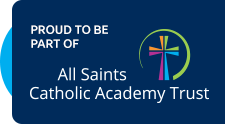Music
Intent
At St Albert the Great, the children will be given the opportunity to perform, listen, review and evaluate music from different perspectives, such as throughout history, different genres, styles and traditions. In order to emphasise our gospel values, the meaning and purpose of the music will be emphasised across the school, taking the context of the music into consideration when doing so.
The music curriculum will be based on the National Curriculum requirements and designed to enable all children to develop their skills through hands on experiences, utilising the traditions of the school as opportunities to learn. As a result, the learning will be driven with the aim to achieve and develop confidence, self-esteem and resilience, enabling the children to become independent and creative learners. This will be achieved through children listening to, creating, composing and performing music in range of contexts including plays, concerts and during assemblies. Our gospel values are promoted through opportunities to build positive relationships with parents, home, parish and other members of the school and local community, such as through the Harvest tea party, concerts, nativity plays, end of year 6 play and carol singing at local residential homes.
Ultimately, the music at St Albert will enable the light of Jesus to, “Shine before others, that they might see [His] good deeds and glorify [His] Father in heaven” (Matthew 5:16)
Implementation
At St Albert the Great, we deliver the requirements of the National Curriculum in Music through celebrating our religious, traditional and cultural aspects of school life. Using the high-quality music and resources provided by Charanga, we have created a curriculum that takes advantage of our liturgy calendar and traditions that are upheld within our school. These include, but are not limited to, singing assemblies, school choir, workshops and performances.
Each Key Stage has set performances throughout the year to enable them to provide progression as they grow.
- All Years perform for our Harvest Tea party, where children listen, sing, play instruments and perform in accordance to the progression of the year group.
- Early Years perform a nativity play, where the children are able to listen, sing and perform.
- Key Stage 1 performs a nativity play, where the children are able to listen with concentration, sing with greater control and perform a more intricate play.
- Key Stage 2 performs a carol concert, where children can perform in solo and ensemble contexts, using their voices with increasing accuracy, listen with attention to detail and understand the history of the hymns they are singing.
- Year 3 and 4 performs an Easter play where the children are able to listen with concentration, sing and perform taking note of the audience.
- Year 6 perform an end of year play to build on their skills throughout their school life.
Opportunities for cross-curricular and outdoor learning with additional chances to utilise community links will be made the most of where possible to build experiences and deepen learning.
Music is taught in the Early Years Foundation Stage across different topics and in a range of activities which are woven through all areas of learning. The main music focus is found under Expressive Arts and Design (EA&D). The children also have weekly Charanga lessons.
Impact
The impact of our curriculum is to engage and inspire children to express themselves in a creative and inclusive way, giving them the ability to perform, listen, review and evaluate music with confidence. Developing a love of music through the use of performances, lessons, assemblies, clubs, workshops, prayers and hymns should be evident throughout a child’s life at St Albert the Great. Learning encompasses a range of historical periods, genres, styles and traditions, including works from great composers and musicians. Music will often link to the culture and religion of the school, highlighting our Gospel Values and faith.
Evidencing the impact of music lessons is through teacher assessment. Evidence may be recorded and saved in the assessment folder if required, which can then be used to aid assessment, using the music assessment grids.




